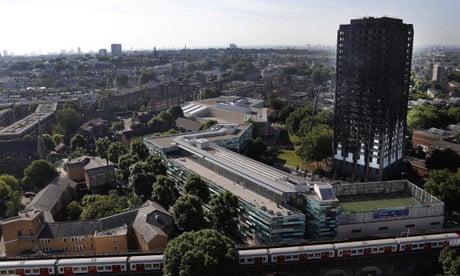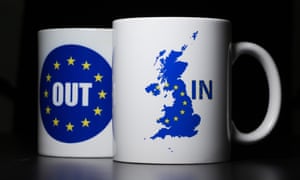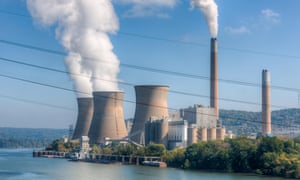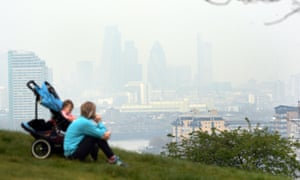'People will forgive you for being wrong, but they will never forgive you for being right - especially if events prove you right while proving them wrong.' Thomas Sowell
Search This Blog
Sunday, 4 August 2024
Thursday, 17 August 2023
A level Economics: Can India Inc extricate itself from China?
The Economist
China and India are not on the friendliest of terms. In 2020 their soldiers clashed along their disputed border in the deadliest confrontation between the two since 1967—then clashed again in 2021 and 2022. That has made trade between the Asian giants a tense affair. Tense but, especially for India, still indispensable. Indian consumers rely on cheap Chinese goods, and Indian companies rely on cheap Chinese inputs, particularly in industries of the future. Whereas India sells China the products of the old economy—crustaceans, cotton, granite, diamonds, petrol—China sends India memory chips, integrated circuits and pharmaceutical ingredients. As a result, trade is becoming ever more lopsided. Of the $117bn in goods that flowed between the two countries in 2022, 87% came from China (see chart).

India’s prime minister, Narendra Modi, wants to reduce this Sino-dependence. One reason is strategic—relying on a mercurial adversary for critical imports carries risks. Another is commercial—Mr Modi is trying to replicate China’s nationalistic, export-oriented growth model, which means seizing some business from China. In recent months his government’s efforts to decouple parts of the Indian economy from its larger neighbour’s have intensified. On August 3rd India announced new licensing restrictions for imported laptops and personal computers—devices that come primarily from China. A week later it was reported that similar measures were being considered for cameras and printers.
Officially, India is open to Chinese business, as long as this conforms with Indian laws. In practice, India’s government uses a number of tools to make Chinese firms’ life in India difficult or impossible. The bluntest of these is outright prohibitions on Chinese products, often on grounds related to national security. In the aftermath of the border hostilities in 2020, for example, the government banned 118 Chinese apps, including TikTok (a short-video sensation), WeChat (a super-app), Shein (a fast-fashion retailer) and just about any other service that captured data about Indian users. Hundreds more apps were banned for similar reasons throughout 2022 and this year. Makers of telecoms gear, such as Huawei and zte, have received the same treatment, out of fear that their hardware could let Chinese spooks eavesdrop on Indian citizens.
Tariffs are another popular tactic. In 2018, in an effort to reverse the demise of Indian mobile-phone assembly at the hands of Chinese rivals, the government imposed a 20% levy on imported devices. In 2020 it tripled tariffs on toy imports, most of which come from China, to 60% then, at the start of this year, raised them to 70%. India’s toy imports have since declined by three-quarters.
Sometimes the Indian government eschews official actions such as bans and tariffs in favour of more subtle ones. A common tactic is to introduce bureaucratic friction. India’s red tape makes it easy for officials to find fault with disfavoured businesses. Non-compliance with tax rules, so impenetrable that it is almost impossible to abide by them all, are a favourite accusation. Two smartphone makers, Xiaomi and bbk Electronics (which owns three popular brands, Oppo/OnePlus, Realme and Vivo), are under investigation for allegedly shortchanging the Indian taxman a combined $1.1bn. On August 2nd news outlets cited anonymous government officials saying that the Indian arm of byd, a Chinese carmaker, was under investigation over allegations that it paid $9m less than it owed in tariffs for parts imported from abroad. mg Motor, a subsidiary of saic, another Chinese car firm, faces investment restrictions and a tax probe.
A convoluted licensing regime gives Indian authorities more ways to stymie Chinese business. In April 2020 India declared that investments from countries sharing a border with it must receive special approvals. No specific neighbour was named but the target was clearly China. Since then India has approved less than a quarter of the 435 applications for foreign direct investment from the country. According to Business Today, a local outlet, only three received the thumbs-up in India’s last fiscal year, which ended in March. Last month reports surfaced that a proposed joint venture between byd and Megha Engineering, an Indian industrial firm, to build electric vehicles and batteries failed to win approval over security reasons.
Luxshare, a big Chinese manufacturer of devices for, among others, Apple, has yet to open a factory in Tamil Nadu, despite signing an agreement with the state in 2021. The reason for the delay is believed to be an unspoken blanket ban from the central government in Delhi on new facilities owned by Chinese companies. In early August the often slow-moving Indian parliament whisked through a new law easing the approval process for new lithium mines after a potentially large deposit of the metal, used in batteries, was unearthed earlier this year. Miners are welcome to submit applications, but Chinese bidders are expected to be viewed unfavourably.
In parallel to its blocking efforts, India is using policy to dislodge China as a leader in various markets. India’s $33bn programme of “production-linked incentives” (cash payments tied to sales, investment and output) has identified 14 areas of interest, many of which are currently dominated by Chinese companies.
One example is pharmaceutical ingredients, which Indian drugmakers have for years mostly procured from China. In February the Indian government started doling out handouts worth $2bn over six years to companies that agree to manufacture 41 of these substances domestically. Big pharmaceutical firms such as Aurobindo, Biocon, Dr Reddy’s and Strides are participating. Another is electronics. Contract manufacturers of Apple’s iPhones, such as Foxconn and Pegatron of Taiwan and Tata, an Indian conglomerate, are allowed to purchase Chinese-made components for assembly in India provided they make efforts to nurture local suppliers, too. A similar arrangement has apparently been offered to Tesla, which is looking for new locations to make its electric cars.
Some Chinese firms, tired of jumping through all these hoops, are calling it quits. In July 2022, after two years of efforts that included a promise to invest $1bn in India, Great Wall Motors closed its Indian carmaking operation, unable to secure local approvals. Others are trying to adapt. Xiaomi has said it will localise all its production and expand exports from India which, so far, go only to neighbouring countries, to Western markets. Shein will re-enter the Indian market through a joint venture with Reliance, India’s most valuable listed company, renowned for its ability to navigate Indian bureaucracy and politics. zte is reportedly attempting to arrange a licensing deal with a domestic manufacturer to make its networking equipment. So far it has found no takers. Given India’s growing suspicions of China, it may be a while before it does.
Friday, 16 June 2017
With Grenfell Tower, we’ve seen what ‘ripping up red tape’ really looks like
For years successive governments have built what they call a bonfire of regulations. They have argued that “red tape” impedes our freedom and damages productivity. Britain, they have assured us, would be a better place with fewer forms to fill in, fewer inspections and less enforcement.
But what they call red tape often consists of essential public protections that defend our lives, our futures and the rest of the living world. The freedom they celebrate is highly selective: in many cases it means the freedom of the rich to exploit the poor, of corporations to exploit their workers, landlords to exploit their tenants and industry of all kinds to use the planet as its dustbin. As RH Tawney remarked, “Freedom for the pike is death for the minnows.”
It will be a long time before we know exactly what caused the horrific fire in the Grenfell Tower, and why it was able to rage so freely, with such devastating loss of life. But it seems at this stage likely that the rapidity with which the fire spread was either caused or exacerbated by the cladding with which the tower was refurbished.
There have been plenty of warnings that cladding can present a severe fire risk. To give just one example, in 1999 the House of Commons select committee on environment, transport and rural affairs published a report entitled Potential Risk of Fire Spread in Buildings Via External Cladding Systems.
But both Conservative and New Labour governments have been highly reluctant to introduce new public protections, even when the need is pressing. They have been highly amenable to tearing down existing protections at the behest of trade associations and corporate lobbyists. Deregulation of this kind is a central theme of the neoliberal ideology to which both the Conservatives and Labour under Tony Blair succumbed.
In 2014, the then housing minister (who is now the immigration minister), Brandon Lewis, rejected calls to force construction companies to fit sprinklers in the homes they built on the following grounds:
Conservative MPs see Brexit as an excellent opportunity to strip back regulations
“In our commitment to be the first Government to reduce regulation, we have introduced the one in, two out rule for regulation … Under that rule, when the Government introduce a regulation, we will identify two existing ones to be removed. The Department for Communities and Local Government has gone further and removed an even higher proportion of regulations. In that context, Members will understand why we want to exhaust all non-regulatory options before we introduce any new regulations.”
In other words, though he accepted that sprinklers “are an effective way of controlling fires and of protecting lives and property”, to oblige builders to introduce them would conflict with the government’s deregulatory agenda. Instead, it would be left to the owners of buildings to decide how best to address the fire risk: “Those with responsibility for ensuring fire safety in their businesses, in their homes or as landlords, should and must make informed decisions on how best to manage the risks in their own properties,” Lewis said.
This calls to mind the Financial Times journalist Willem Buiter’s famous remark that “self-regulation stands in relation to regulation the way self-importance stands in relation to importance”. Case after case, across all sectors, demonstrates that self-regulation is no substitute for consistent rules laid down, monitored and enforced by government.
Crucial public protections have long been derided in the billionaire press as “elf ’n’ safety gone mad”. It’s not hard to see how ruthless businesses can cut costs by cutting corners, and how this gives them an advantage over their more scrupulous competitors.

Grenfell Tower fire is corporate manslaughter, says Labour MP
The “pollution paradox” (those corporations whose practices are most offensive to voters have to spend the most money on politics, with the result that their demands come to dominate political life) ensures that our protections are progressively dismantled by governments courting big donors.
Conservative MPs see Brexit as an excellent opportunity to strip back regulations. The speed with which the “great repeal bill” will have to pass through parliament (assuming that any of Theresa May’s programme can now be implemented) provides unprecedented scope to destroy the protections guaranteed by European regulations. The bill will rely heavily on statutory instruments, which permit far less parliamentary scrutiny than primary legislation. Unnoticed and undebated, crucial elements of public health and safety, workers’ rights and environmental protection could be made to disappear.
Too many times we have seen what the bonfire of regulations, which might sound like common sense when issuing from the mouths of ministers, looks like in the real world. The public protections that governments describe as red tape are what make the difference between a good society and barbarism. It is time to bring the disastrous deregulatory agenda to an end, and put public safety and other basic decencies ahead of corner-cutting and greed.
Wednesday, 5 April 2017
Freedom for whom, at whose expense?
 ‘When thinktanks and the billionaire press call for freedom, they are careful not to specify whose freedoms they mean. Freedom for some, they suggest, means freedom for all.’ Photograph: Dan Kitwood/Getty Images
‘When thinktanks and the billionaire press call for freedom, they are careful not to specify whose freedoms they mean. Freedom for some, they suggest, means freedom for all.’ Photograph: Dan Kitwood/Getty ImagesPropaganda works by sanctifying a single value, such as faith, or patriotism. Anyone who questions it puts themselves outside the circle of respectable opinion. The sacred value is used to obscure the intentions of those who champion it. Today, the value is freedom. Freedom is a word that powerful people use to shut down thought.
When thinktanks and the billionaire press call for freedom, they are careful not to specify whose freedoms they mean. Freedom for some, they suggest, means freedom for all. In certain cases, this is true. You can exercise freedom of thought, for instance, without harming others. In other cases, one person’s freedom is another’s captivity.
When corporations free themselves from trade unions, they curtail the freedoms of their workers. When the very rich free themselves from tax, other people suffer through failing public services. When financiers are free to design exotic financial instruments, the rest of us pay for the crises they cause.
Above all, billionaires and the organisations they run demand freedom from something they call “red tape”. What they mean by red tape is public protection. An article in the Telegraph last week was headlined “Cut the EU red tape choking Britain after Brexit to set the country free from the shackles of Brussels”. Yes, we are choking, but not on red tape. We are choking because the government flouts European rules on air quality. The resulting air pollution frees thousands of souls from their bodies.
To be fair to the Telegraph, which is running a campaign to deregulate the entire economy once Britain has left the EU, it is, unusually, almost explicit about who the beneficiaries are. It explains that “the ultimate goal of this whole process should be to … set the wealth creators free”. (Wealth creators: code for the very rich.) Among the potential prizes it lists are changes to the banana grading system, allowing strongly curved bananas to be categorised as Class 1, a return to incandescent lightbulbs and the freedom to kill great crested newts.
I suspect that the Barclay brothers, the billionaires who own the Telegraph, couldn’t give a monkey’s about bananas. But as their business empire incorporates hotels, shipping, car sales, home shopping and deliveries, they might be intensely interested in the European working time directive and other aspects of employment law, tax directives, environmental impact assessments, the consumer rights directive, maritime safety laws and a host of similar public protections.
If the government agrees to a “bonfire of red tape”, we would win bent bananas and newt-squashing prerogatives. On the other hand, we could lose our rights to fair employment, an enduring living world, clean air, clean water, public safety, consumer protection, functioning public services, and the other distinguishing features of civilisation. Tough choice, isn’t it?
The overriding of the safety mechanism on a ride at Alton Towers led to two young women having their legs amputated
As if to hammer the point home, the Sunday Telegraph interviewed Nick Varney, chief executive of Merlin Entertainments, in an article claiming that the “red tape burden” was too heavy for listed companies. He described some of the public protections that companies have to observe as “bloody baggage”. The article failed to connect these remarks to his company’s own bloody baggage, caused by its unilateral decision to cut red tape. As a result of overriding the safety mechanism on one of its rides at Alton Towers – which was operating, against the guidelines, during high winds – 16 people were injured, including two young women who had their legs amputated. That’s why we need public protections of the kind the Telegraph wants to destroy.
The same ethos, with the same justification, pervades the Trump administration. The new head of the environmental protection agency, Scott Pruitt, is seeking to annul the rules protecting rivers from pollution, workers from exposure to pesticides, and everyone from climate breakdown. It’s not as if the agency was overzealous before: one of the reasons for the mass poisoning in Flint, Michigan, was its catastrophic failure to protect people from the contamination of drinking water by lead: a failure that now afflicts 18 million Americans.

‘The new head of the US environmental protection agency is seeking to annul the rules protecting rivers from pollution, workers from exposure to pesticides and everyone from climate breakdown.’ Photograph: Alamy
On neither side of the Atlantic are these efforts unopposed. Trump’s assault on public protections has already provoked dozens of lawsuits. The European council has told the UK government that if it wants to trade with the EU on favourable terms after Brexit, companies here cannot cut their costs by dumping them on the rest of society.
This drives the leading Brexiters berserk. As a result of the pollution paradox (the dirtiest corporations have to spend the most money on politics, so the political system comes to be owned by them), politicians like Boris Johnson and Michael Gove have an incentive to champion the freedom of irresponsible companies. But it also puts them in a bind. Their primary argument for deregulation is that it makes businesses more competitive. If it means those businesses can’t trade with the EU, the case falls apart.
They will try to light the bonfire anyway, as this is a question of power and culture as well as money. You don’t need to listen for long to the very rich to realise that many see themselves as the “independents” Friedrich Hayek celebrated in The Constitution of Liberty, or as John Galt, who led a millionaires’ strike against the government in Ayn Rand’s novel, Atlas Shrugged. Like Hayek, they regard freedom from democracy as an absolute right, regardless of the costs this may inflict on others, or even themselves.
When we confront a system of propaganda, our first task is to decode it. This begins by interrogating its sacred value. Whenever we hear the word freedom, we should ask ourselves, “Freedom for whom, at whose expense?”
Sunday, 22 September 2013
Clearing projects is not the Cabinet’s job
The rupee has bounced back, the stock market has soared, and finance minister Chidambaram is smiling again. This will not last, because there’s no clear strategy to remedy the economy’s structural weaknesses.
One big structural problem is the creation of ever more laws, rules and regulations. Every new rule has admirable aims like inclusivity, environmental preservation and fair land acquisition. But no law ever provides finance for staff and expertise required to implement the new regulations effectively. This overloads a bureaucracy already collapsing under old commitments. Some district collectors say they have to oversee 3,000 schemes.
No new law does cost-benefit analysis. Yet good governance requires laws that provide enough financial and administrative resources to actually work. Otherwise, we get unending delay, cynicism and corruption.
Don’t confuse this with policy paralysis: that’s a separate problem. Even when policymakers want to proceed, rules and regulations produce delays that are not merely long but cannot even be quantified or provided for. For example, the POSCO steel project in Odisha has not started despite a dozen years of effort backed fully by the chief minister. An NTPC official recently said it now took 12 years to clear and acquire land for a new coal mine. This is why, despite having the third largest coal reserves in the world, India has become a massive coal importer.
Yes, we need rules sensitive to inclusion and the environment. But they must also be designed for clearance within reasonable, predictable periods. Alas, we see no sign of this.
Chidambaram said in a recent interview with the Financial Times, “What is keeping investors out is the experience and the fear that we cannot implement a project on time…The Japanese, for example, if they have a start date, they also have a finish date... But in India they run into delays of months or years…the foreign investor is frightened by that kind of delay.”
This frightens the Indian investor no less than the foreigner. The most frightening phenomenon is that of Indian investors saying that they would rather invest abroad than in India.
I recently met a medium-scale businessman who said that earlier too, rules and regulations made honest clearances impossibly long. But quick clearances were possible through bribes. However, the recent anti-corruption mood and fear of the courts and CAG meant that, even after making payoffs, clearances did not come. The businessman said he was switching to Africa, which was highly corrupt but allowed investment to go ahead after payoffs.
To end the investment drought, the Cabinet has often met to clear projects worth lakhs of crores. Do not cheer. The very fact that projects galore cannot proceed without Cabinet intervention is a serious structural failure.
In any good system, the Cabinet makes policy, and project-by-project implementation is done by the ministries. If rules and regulations make it impossible for ministries to clear projects, the answer cannot be Cabinet meetings that guillotine the scrutiny process. Rather, the scrutiny process must be overhauled thoroughly so that clearances occur predictably within a fixed time frame, without Cabinet rescues.
RBI Governor Raghuram Rajan says repeatedly that we must slash red tape and unnecessary regulation. But where is the action? The government keeps coming out with more new laws, rules and regulations. Not a single legislative or administrative effort aims to ruthlessly prune red tape.
The problem is worst in infrastructure, without which the rest of the economy simply cannot grow sustainably. Historically, infrastructure was funded almost entirely by the government. A decade ago, the government ran out of money because it has so many other commitments. The private sector and public-private partnerships were seen as the solution. The boom in such deals was accompanied by accusations of crony capitalism.
However, constant delays have converted those crony deals into financial quicksand. Many supposedly top cronies are going bust. The stock market price of Reliance Infrastructure is down from a peak of Rs 2,584 to Rs 396 today, GMR from a peak of Rs 131 to Rs 21, GVK from Rs 85 to Rs 7, Lanco Industries from Rs 113 to Rs 18, and Lanco Infratech from Rs 84 to Rs 6. Several of these companies are sick, on life support from banks.
Historically, the government built infrastructure with long delays. The government met the resultant cost escalation through tax revenue. But when the private sector entered big infrastructure, after taking large loans, it found that even modest delays made projects unviable, and long delays could bust a company. This structural problem cannot be overcome by emergency Cabinet clearances. It needs a totally new system of predictable, reasonably rapid clearances that make Cabinet rescues completely unnecessary.
